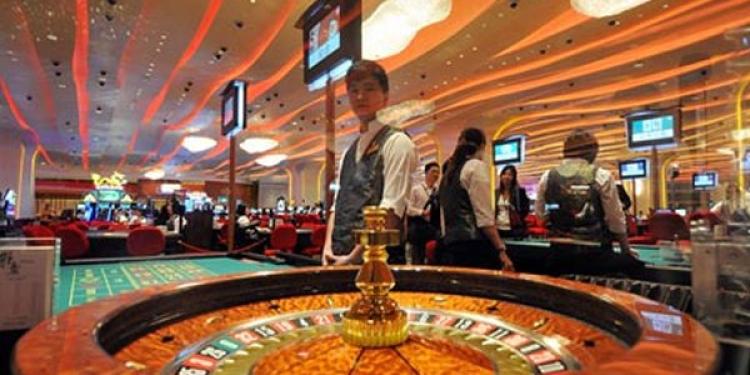Macau Future Cannot Come Soon Enough
Posted: October 8, 2014
Updated: June 4, 2017

Macau has in recent years been a success story of mammoth proportions but will a mounting list of little issues bring down the beast?
When the Portuguese began the process of returning Macau to the sovereignty of China it was out of a desire to shed the past. The Carnation Revolution of the mid-seventies had spawned a desire to decolonize and Portugal (who had once before attempted to give back Macau) insisted upon this process with China agreeing at its own majestic pace. The actual hand over took place in 1999 just two years after the return of Hong Kong.
Macau Faces A Few Issues
• Smoking ban introduced
• Chinese crackdown on corruption
• Staff Strike over pay and benefits
This transference was hailed as a successful imposition of the much touted “one-country-two-systems” solution to the manifest and evident cultural and economic differences between these two regions and the rest of China proper. Both sides gambling news that for the following fifty years at least these “Special Administrative Regions” would enjoy massive autonomy outside of foreign policy and defense would placate critics.
However recent events have shown that even minor interference within these Special Administrative Regions can have disastrously pronounced effects and consequences. The occasional crackdown on gambling’s shadowy side had been a political football in China as much as it has been anywhere else. With a high level public anger towards the excesses of corruption amongst public officials it has served the Chinese leadership well to be seen to be stamping down on corruption.
This is especially true if it is corruption involving western corporate interests which goes some way to explaining the all but constant investigations into the purchase of land, the construction processes and indeed the day to day operations of how these companies, the fiscal backbone of Macau, operate. The currency movement restrictions imposed by China on its citizens creating as much corruption amongst punters as amongst operators.
Smoke Clouds On The Horizon?
However whilst the recent crackdown on Junket operators and tighter oversight of fiscal transfers has had a distinctly negative effect on the number of high-rollers coming to Macau, perhaps reticent to discuss where their money came from, in the main this is seen as a blip in the development and progress that the province is making creating a paradise for those who like to bet on sports in Greece right on the doorstep.
Given the quantities of money involved, Macau alone generated $47.89 billion in gaming revenue during the 12 months prior to July of this year, that’s in excess of the entire US market’s $37.24 billion total, and quite simply means that there is little reason to strangle the goose that lays the golden eggs, even if every now and again one needs to slap its beak to stop it honking quite so noisily. Chinese heavy handedness is nothing new in Macau, this too, they say, will pass.
Of course there are other less dramatic changes in the province that might have a deep impact. This week strict anti-smoking rules come into force that ban smoking in “mass areas” – which would include casino floors – and whilst many VIP suites will still allow it, and with just over 62% of gaming revenue comes from private VIP baccarat parties (or Junkets as they’re known locally) this may go some way to mitigating the effects, there is likely to be a small but significant decrease in turnover.
Previous forecasts of a low single digit fall have been raised upon details of the ban being released and proving much more draconian than it was believed they would be. A mid to high single digit fall is expected, and whilst that might not be the end of the world, it comes at a time where there are already pressures on Macau and its potential short term future. The greatest of these is the ready access to the tourist markets that lie just across the water in Hong Kong.
Protests Reduce Trade From Tourists
The polite protests in Hong Kong are worrying the Chinese. Political demands from a savvy younger generation willing to occupy the streets are not something any government likes to deal with. The sprawling mass of students and idealists is hard to communicate with, let alone negotiate with, effectively, but Chinese discomfort with the growing pains of its “one-country-two-systems” solution has little effect on Macau, indeed it happily diverts attention away from them and their issues with Chinese gambling laws.
Unfortunately events in Hong Kong are also diverting away tourists, and tourists not coming across the water to Macau is another small percentage drop in turn over that casinos in the province could well do without. Obviously the protests won’t last forever, but the possibility of riots on the streets is relatively real and images like that flashed around the world will do nothing for visitor numbers to the region over the year following on.
As if knowing when best to hit home there are even troubles brewing within the casinos themselves where a series of sick-strikes (whereby everyone takes sick leave on a particular day) have swept through various casinos as staff seek better benefits and higher wages, and a local union has staged labor protests in the city. This has but compounded the issues that Macau faces and explains three consecutive months of decline with more forecast.
The Chinese crackdown, the smoking ban, the Hong Kong situation and steadily deteriorating labor relations are all in of themselves something that Macau could weather, but whether it can weather them all at the same time remains to be seen and highlights in the minds of investors the lynchpin position gambling occupies in the province. Without gambling’s profits, Macau would simply cease to be a viable city, and these difficulties today may just herald a less than rosy future for gambling’s global capital.












